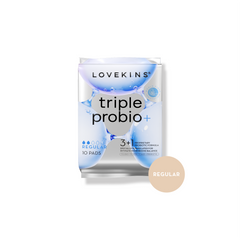Perinatal mental health is defined as the emotional wellbeing of a woman and her partner from conception until 2 years postpartum. This major life transition is associated with the vulnerability of experiencing a mental health condition. The transition to motherhood is enormous and can be difficult at times, so we must normalize the journey of becoming a mother / parent. It can be a rollercoaster, with some days filled with love and joy and others with stress and frustration. It is normal to feel a small degree of stress as you begin to adjust to new changes in your world, but if negative thoughts and feelings begin to impact your ability to function or last more than two weeks, please seek support and medical advice. The Australian guideline for perinatal mental health (Centre of Perinatal Excellence (COPE), recommends that all women are screened for mental health illnesses, during pregnancy and postnatally. Your mental health will be monitored by your healthcare provider through an assessment called Edinburgh Postnatal Depression Scale. The questionnaire assists your healthcare provider work out how you are feeling and if you need extra support.
Perinatal mental health illnesses include:
- Antenatal or postnatal anxiety and/or depression
- Bipolar disorder
- Schizophrenia
- Postpartum psychosis
- Obsessive-compulsive disorder
- Post-traumatic stress disorder
Common signs & symptoms
The mental health conditions above can be present with varied signs and symptoms. The most common being:
- Sleep disturbance- insomnia (not being able to sleep) or wanting to sleep constantly
- Changes in appetite- having no interest in eating (less appetite) or binge eating significantly more than before pregnancy
- Ongoing stress- worrying all the time and being concerned something is wrong or will go wrong with you or your baby
- Frequent ups and downs- ongoing mood swings that last for more than two months
The most common perinatal mental health conditions are anxiety and depression, which is experienced by 1 in 6 women in the year after the birth of their baby.
- Symptoms of depression: low mood or feeling sad, loss of interest in things you enjoyed, agitated, feeling worthless, having thoughts harming yourself or your baby.
- Symptoms of anxiety: fear that interrupts your thoughts and daily tasks, worries that are difficult to control, feeling on edge, heart palpitations.
If you are experiencing ongoing stress that does not pass and begins to affect your ability to function, or things are getting on top of you, please ask those around you for help.
Getting help
You are your baby’s most important asset, so caring for yourself is as important as caring for your baby. Mental health conditions don’t go away on their own, you must get support. Without getting help, your symptoms may continue to worsen over time. The sooner you get help, the sooner you will recover. If you are experiencing any symptoms for more than two weeks, it is time to seek support and professional help. Although organisations reference two weeks, it’s important to know you can seek help at ANY time, espeiclally if you are having scary thoughts of harming you or your baby.
Support from your partner, family and friends can help to improve your mood and mental health. Your village can assist you with practical jobs (housework, cooking, looking after baby) as well as being there for you emotionally.
You can chat to your midwife or child health nurse regarding your mood and they can offer suggestions or recommend a GP.
Seek support from a GP with good knowledge of mental health or a known GP to you. Your GP will assess your symptoms, give you more information and suggest treatment options.
Your GP may refer you to a psychologist for extra support. Psychologists specialise in mental health conditions and can recommend certain therapies, treatments and coping strategies which may assist you to improve your mental health.
Perinatal Anxiety and Depression Australia (PANDA) hotline (1300 726 306), local hospital (walk into emegerncy if needed), and resources such as; Beyond Blue, PANDA, COPE, MumSpace.com.au, PeachTree.
Solutions to help your mental health
If your symptoms don’t last long and don’t interfere with daily life try to manage them through:
- Breathing techniques and mindfulness
- Talk to someone about how you are feeling, a psychologist or counscellor is a great place to start (you can obtain a mental health plan to reduce costs by going through your GP)
- Support from fellow mothers
- An activity to help you relax / some alone time.
A few ideas that you can do on a daily basis to maintain a happy family life:
- Get some fresh air, it will help you reset and clear your mind
- Walk/exercise improves mood, stress, wellbeing and energy
- Having healthy, simple snacks and meals (high in protein) pre-prepared is very important when pregnant and breastfeeding, and keep hydrated!
- Getting sleep will improve your wellbeing and thought process. This can be hard for a new mum, but ask someone to look after baby so you can get some rest.
- Ring someone close to you for a chat. Don’t bottle up feelings, discuss them with people around you, you’ll feel better afterwards.
- Having alone time doing something you enjoy; meditation, a bath, a meal out, reading a book, coffee with a friend.
- If you are feeling overwhelmed at home, prioritise jobs and only do what is really important. Be prepared to leave some things not done and that is okay.
- If someone from your village offer to help, don’t say no. Learn to accept help, even if it just something small to help lighten the load for you.
- Support groups or mother’s groups can be fabulous also; you are more likely to accept how you are feeling and get help if you are not alone and you can relate to others
This blog is written by midwife Aliza Carr from Bumpnbub. All advice is general only and does not replace the need for medical advice.













